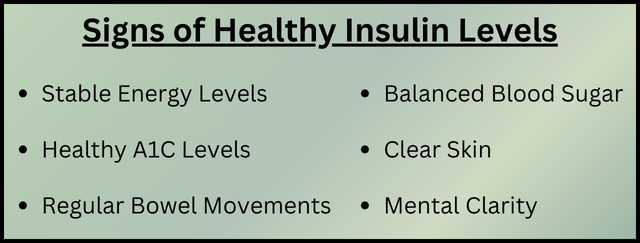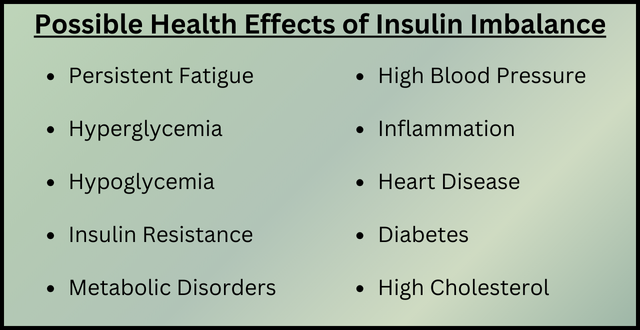Medically Reviewed by Lucas Rosa, PhD in Molecular Biology

Learn about the crucial roles of insulin that are essential for maintaining a healthy metabolism.
What Is Insulin?
Insulin is a metabolic hormone that is secreted by the pancreas and plays a vital role in regulating blood sugar. Metabolism is the process of turning food into energy, so without this hormone, our bodies would not be able to do that process properly.
Insulin enables glucose (an essential sugar) to enter cells, where it is either used for energy production or stored for future needs.
Carbohydrates are the primary energy source, they are broken down into glucose which then enters our bloodstream. Then insulin is released by the pancreas to help transport glucose into cells.
This process is key to maintaining stable energy levels and ensuring your body functions efficiently throughout the day.

Functions of Insulin
Insulin’s role extends beyond just regulating blood sugar levels. It plays a crucial role in various bodily processes, ensuring that energy is stored and used efficiently. These include:
Regulation of Glucose Metabolism: Insulin is essential for regulating the amount of glucose circulating in the blood. Following a meal, insulin facilitates the transport of glucose into cells, providing them with the energy they need to function.
Storing Energy: Insulin aids in storing surplus glucose by converting it into glycogen, which is kept in the liver and muscles for later use when energy levels drop. Once our bodies have enough glucose for immediate energy needs, insulin signals to the liver and muscles to store the rest for later use. Once glycogen stores are full, insulin facilitates the conversion of excess glucose into fat, which is then stored in adipose tissue as a long-term energy reserve.
Protein Synthesis and Muscle Growth: Insulin helps build proteins and muscle tissue. This function is crucial for muscle recovery post-workout and overall muscle maintenance. Insulin prompts cells to absorb amino acids (the building blocks of proteins) which supports tissue repair and muscle growth.
Brain Function and Mood Regulation: When insulin is balanced, it supports overall cognitive function and emotional stability. Glucose is the brain’s primary fuel source, and insulin regulates the availability of glucose in the brain. Moreover, balanced insulin levels contribute to emotional stability and sharpen cognitive function, reducing mood swings and enhancing mental clarity.

Insulin Imbalances
An imbalance of insulin levels, whether too high or too low, can trigger various health complications. Keeping insulin in check is crucial for sustaining overall well-being.
Too High Insulin Levels (Insulin Resistance): Cells can become resistant to insulin, causing the body to compensate by creating more insulin. This can lead to elevated blood sugar levels if the pancreas cannot keep up with the high demand for insulin.
Too High Insulin Levels (Hypoglycemia): Also, when insulin levels are too high and cells don’t become resistant to insulin, blood sugar levels can decline below healthy ranges. The high amount of insulin can make it easier for blood sugar to enter cells, leading to a low amount of sugar in the blood.
Too Low Insulin Levels (Hyperglycemia): When insulin levels are too low, the body will not be able to properly regulate blood sugar levels. Glucose won’t be able to enter the cells, causing it to build up in the bloodstream, which leads to high blood sugar levels.
Insulin imbalances are linked to a number of chronic conditions. Whether the body is producing too much or too little insulin, there are health conditions that each could cause.

How to Maintain Healthy Insulin Levels
Maintaining healthy insulin levels and reversing insulin resistance is crucial for preventing hormonal imbalances. Here are several strategies to keep your insulin levels in check:
- Whole, Nutrient-Dense Diet: Consuming excessive refined carbohydrates and sugars can trigger frequent insulin surges, which can contribute to insulin resistance over time. Choosing low glycemic index foods such as whole grains and non-starchy vegetables can support insulin levels.
- Being Physically Active: Regular exercise helps your body make better use of insulin, decreasing the need for extra insulin. Incorporating strength training exercises, like weight lifting, can further boost insulin sensitivity by increasing muscle mass, which requires more glucose to function.
- Stress Management: Chronic stress triggers an increase in cortisol production, which can drive up insulin levels over time. High cortisol can make the body more resistant to insulin, so managing stress can help keep insulin in check.
- Sleep and Circadian Rhythm: Sleep is essential for hormone regulation. Poor sleep or inconsistent sleep patterns can cause insulin resistance over time. Aim for 7-9 hours of quality sleep each night and try to maintain a regular sleep-wake schedule to support your body’s circadian rhythm.
Conclusion
Insulin is essential for keeping your body’s metabolism in harmony. Whether it’s regulating blood sugar, storing energy, or supporting muscle growth, insulin is vital for overall health.
Through healthy eating, regular exercise, stress management, and proper sleep, you can naturally maintain healthy insulin levels and enjoy long-term health benefits.
Sources:
Abbott Newsroom. “What Is Glucose, and Why Does It Matter?” Abbott, 2024, www.abbott.com/corpnewsroom/nutrition-health-and-wellness/what-is-glucose-and-why-does-it-matter.html.
Centers for Disease Control and Prevention. “About Low Blood Sugar (Hypoglycemia).” CDC, 31 May 2024, www.cdc.gov/diabetes/about/low-blood-sugar-hypoglycemia.html.
Cleveland Clinic. “Insulin.” Cleveland Clinic, Cleveland Clinic, 17 Jan. 2024, https://my.clevelandclinic.org/health/body/22601-insulin.
Cleveland Clinic. “Insulin Resistance: What It Is, Causes, Symptoms & Treatment.” Cleveland Clinic, Cleveland Clinic, 16 Dec. 2021, https://my.clevelandclinic.org/health/diseases/22206-insulin-resistance.
Crawford, Serena. “How to Reverse Insulin Resistance.” Yale School of Medicine, Yale School of Medicine, 10 Apr. 2024, https://medicine.yale.edu/news-article/how-to-reverse-insulin-resistance/.
Gray, Sarah M., et al. “Insulin Regulates Brain Function, but How Does It Get There?” Diabetes, vol. 63, no. 12, 1 Dec. 2014, pp. 3992–3997, https://diabetes.diabetesjournals.org/content/63/12/3992, https://doi.org/10.2337/db14-0340.
Kolb, Hubert, et al. “Insulin: Too Much of a Good Thing Is Bad.” BMC Medicine, vol. 18, no. 1, 21 Aug. 2020, https://doi.org/10.1186/s12916-020-01688-6.
Medline Plus. “Insulin in Blood: MedlinePlus Lab Test Information.” Medline Plus, 2019, https://medlineplus.gov/lab-tests/insulin-in-blood/.
Musleh Al-Badrani, Shatha, and Noorah Saleh Al-Sowayan. “Consequences of Insulin Resistance Long Term in the Body and Its Association with the Development of Chronic Diseases.” Journal of Biosciences and Medicines, vol. 10, no. 12, 1 Jan. 2022, pp. 96–109, www.scirp.org/journal/paperinformation?paperid=121883, https://doi.org/10.4236/jbm.2022.1012009.
Rahman, Saidur. “Role of Insulin in Health and Disease: An Update.” International Journal of Molecular Sciences, vol. 22, no. 12, 2021, p. 6403, https://pmc.ncbi.nlm.nih.gov/articles/PMC8232639/, https://doi.org/10.3390/ijms22126403.
Check Out
HF Swaps
Better products for better hormone health.









